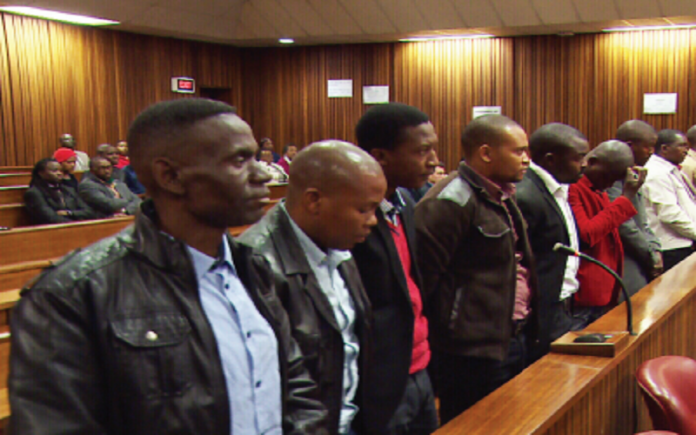Mozambique: Police burn 400 kg of seized cannabis sativa
Mido Macia killers granted leave to appeal by SCA

The New Age
The acting president of the Supreme Court of Appeals (SCA) expressed doubt about the conviction of Mozambican taxi driver Mido Macia’s killers.
Judge Lex Mpati yesterday granted the eight former police officers who dragged Macia behind a police van in 2013, special leave to appeal after their applications had been dismissed by two courts.
Mpati questioned the trial court’s findings on common purpose.
“I have grave doubts, with respect, about the appropriateness of the trial court’s application of the doctrine of common purpose in the case before it.
“In my view a correct application of the doctrine might well yield a different result than a murder conviction,” he said.
In November last year, police officers Meshack Malele‚ 46‚ Thamsanqa Mgema‚ 35‚ Percy Jonathan Mnisi‚ 26‚Bongamusa Mdluli‚ 25‚ Sipho Sydwell Ngobeni‚ 30‚ Lungisa Gwababa‚ 31‚ Bongani Kolisi‚ 27 and Linda Sololo‚ 56, were sentenced to 15 years in prison for murder by the North Gauteng High Court.
Earlier this year Mdluli was granted leave to appeal but his co-accused were denied both in the high court and SCA.
They then applied to Mpati for a referral of the order dismissing their application for special leave to appeal to the court for reconsideration.
Mpati ruled in their favour, saying there was no doubt that Macia was assaulted, but the basis of the findings that he was assaulted by two policemen was not clear.
“However, the single witness to the assault, WO Ngamlana, testified that when the deceased fell inside the cell he was surrounded by the policemen (accused 2 to 8) and that he could not see what was happening, but heard what sounded like open hand slaps,” he said.
“It is therefore not clear from the judgment whether only one or more of the policemen inside the cell assaulted the deceased.
“The basis for the finding that ‘accused 2 to 8 assaulted the deceased in the cell’ is, therefore, not clear from the judgment of the trial court,” Mpati said.
He questioned the trial court’s conclusion that the applicants’ form of intent dolus eventualis and that in his view, another court might find differently.












Leave a Reply
Be the First to Comment!
You must be logged in to post a comment.
You must be logged in to post a comment.